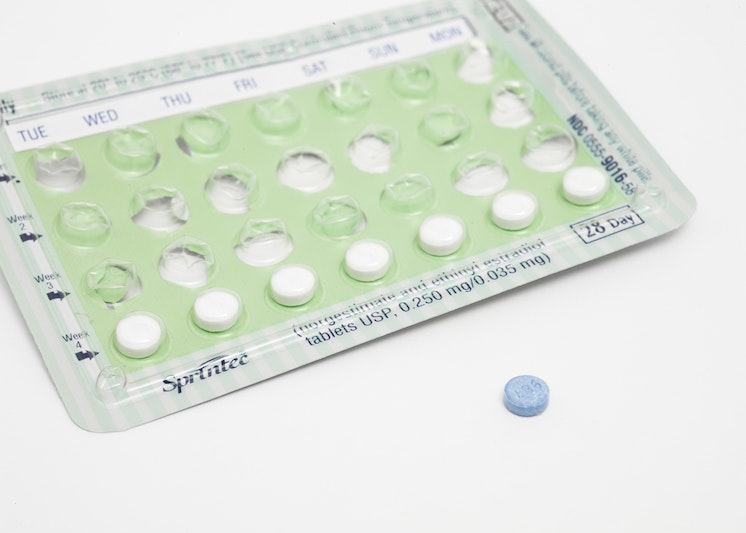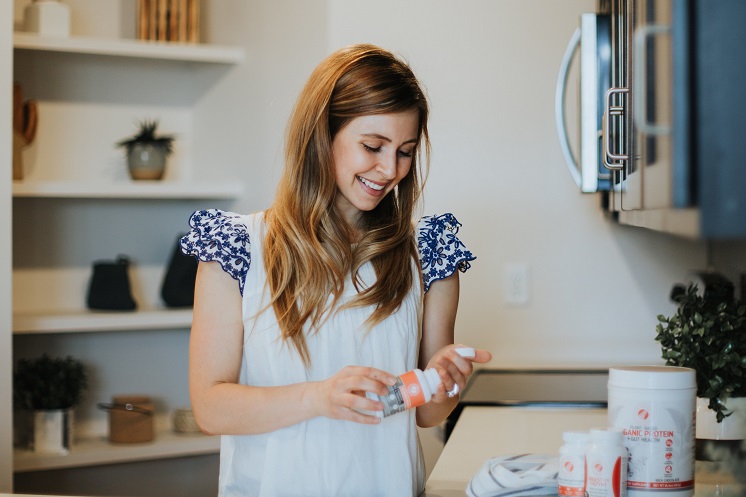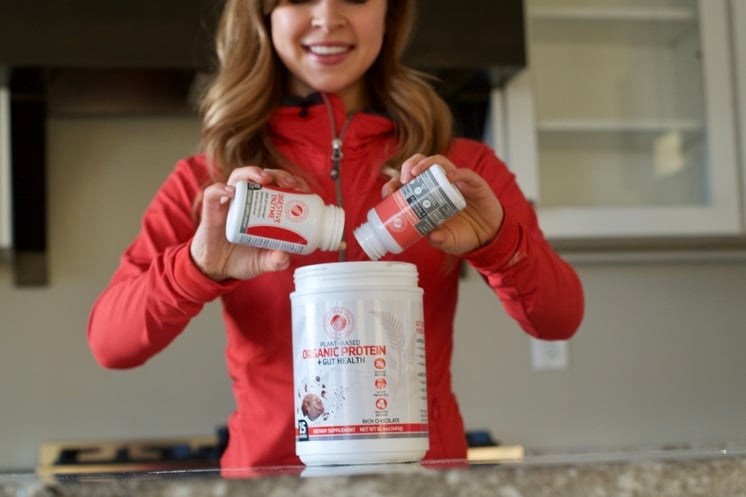This article is offered in partnership with Silver Fern—they’re dedicated to improving your life by improving your health, and we’re honored to share their work with you. ~ ed.
I had no idea how many of us suffer from gut issues.
Even as a qualified nutritionist, it was a total eye-opener for me when I started really diving into the area of gut health.
It’s the main reason I founded Silver Fern: to help as many people as possible to live their best lives by becoming their healthiest selves…and the more I learn, the more I am convinced that it all begins in the gut.
The gut is a huge part of our immune system (roughly 80 percent) and is incredibly interconnected with the brain—so it’s affects so much more than just our digestive health. But our modern lifestyle (food choices, chemicals, sanitation, lack of being outdoors…) is destroying our microbiome and this has created a critical imbalance in many of us.
The truth is, even if you think you don’t have a gut problem, chances are you do. Many of our health issues—physical, and even mental—can be traced back to not having enough of the right bacteria in our bodies; and a lot of these issues can be resolved by simply rebalancing our microflora.
At which point most of us are reaching for the probiotics, right? Well, here’s another eye-opening truth for ya:
Although probiotics can help, the majority of the probiotics on the market simply do not work. (1)
Why? Because they’re dead before they hit your gut. In fact, according to microbiologist, Kiran Kirshnan, “Americans spend about $36 billion a year on dead bacteria.”
This is because only certain strains of probiotics are clinically proven to survive the gastric acids of the stomach and all the way down to the large intestines where they can colonize. Read on for how to identify a good quality probiotic, and more solutions to better gut (and overall) health…
Read on for 7 things destroying your gut health (and 5 ways to heal):
Get the most advanced & effective probiotic available anywhere* >>
*Elephant readers get 25% site-wide via this link or using code EJOURNAL25
1. Antibiotics…in our food
Many of us are aware that antibiotics kill all gut bacteria—good and bad. In 2015 alone, approximately 269 million antibiotic prescriptions were dispensed from pharmacies in the United States. (2, 3) This would be enough for five out of every six people to receive one antibiotic prescription each year.
These statistics alone show the potential damage done to gut, but unfortunately that’s not the worst of it. Antibiotics are now being served on our plates.
According to an analysis of U.S. Food and Drug Administration data by the Johns Hopkins University’s Center for a Livable Future, 80 percent of the antibiotics sold in 2009 were for use on livestock and poultry, and only 20 percent was for human medical use. (4)
This means that while we may be successful avoiding the over-the-counter drug, we now need to be even more vigilant with our food choices. Factory farmed meat, chicken, and fish are the biggest culprits, so if we’re going to keep eating meat, it’s yet another reason to spend our money on organic, and to make the effort to find out exactly where our meat is coming from.
2. Glyphosate
This is a chemical agent found in Roundup and, due to national farming practices, it is destroying our microbiome. This was originally approved by the FDA because the manufacturers showed that glyphosate kills plant cells and not human cells (through something called the shikimate pathway; watch the video below for more on that). This is true, but we now know that glyphosate also kills bacterial cells. And since humans have 10 times more bacteria cells than human cells, glyphosate is wreaking havoc on the gut.
3. Toxins in our water, and in our homes
Chlorine can kill our microflora just like antibiotics. This harmful chemical is added to water because it is a highly efficient disinfectant that kills harmful organisms or pathogenic bacteria. Unfortunately, this could be bad news for your gut. Cleaning supplies, shampoos, laundry detergent, and deodorant can all contain harmful compounds
4. Diets high in fat and low in fiber
Fiber essentially acts as a fertilizer for the microbiome. Without it your gut will suffer. (5) The types of fat you eat can also affect the health of your gut. Research has shown that a diet high in omega-6 and low in omega-3 leads to a significant increase of bad bacteria that can trigger inflammation. Consumption of trans fatty acids can also damage the gut.
Get the best quality natural prebiotic fiber supplement on the market >>
*Elephant readers get 25% site-wide via this link or using code EJOURNAL25
5. Refined sugar and artificial sweeteners
Just like healthy bacteria need fiber and prebiotics to thrive and proliferate, pathenogenic or “bad bacteria” also look for nutrients to aid in their survival. These harmful bacteria tend to thrive on junk food and sugar. Hence, uncontrollable sugar cravings may be an indicator of dysbiosis, or a microbial imbalance, in the gut. And it’s not just sugar; artificial sweeteners play havoc with our gut bacteria, too. (6) Studies suggest that the microflora in our gastrointestinal tract may also influence our eating behavior. These microbes may be able to affect reward center of the brains, alter mood, and even change taste receptors, making it even harder to resist the stuff that’s actually killing us slowly. (7)
6. Prolonged birth control use

Another shocker! Many women are unaware of the fact that oral contraceptives can kill beneficial bacteria, promote candida overgrowth, or exacerbate constipation. (8) While some may have no severe side effects on some people, years and years of taking birth control pills can create an imbalanced inner ecosystem (with an overgrowth of bad bacteria and yeast) that can make women more susceptible to disease. Those taking birth control pills for a reason other than contraception, such as for acne or PCOS, may want to reconsider the choice.
A recent study led by Harvard University gastroenterologist Dr. Hamed Khalili, found a link between oral contraceptives and Crohn’s disease. “If you took oral contraceptives for more than five years, you have a three-fold increased risk of Crohn’s disease,” Khalili explained, as reported by Health News. (9)
7. Your active lifestyle
Yep, it’s true. Strenuous exercise makes athletes more susceptible to gut issues. During a workout the blood is pulled out of the intestine and into the working muscles groups. This, along with increased core temperature, can cause disruption to the healthy bacteria in the gut. And if you’re training for a city marathon, say, you’re even more susceptible, because exposure to pollution is another risk factor for dysbiosis.
Time for the good news–here are 5 things you can do to heal:
Many gut issues, including gluten intolerance can be healed. And many of the above risk factors can be managed, with the right support for your good bacteria. Read on to find out more…
1. Avoid processed foods and refined sugars
Look for food your grandmother would recognize. Rule of thumb: if there are more than five ingredients on the label, it’s probably too processed. Generally, try to avoid food with labels in the first place. Shop round the peripheries of the supermarket; avoid the middle. Even better, avoid the supermarket and shop local, organic whole foods at your nearest farmer’s market.
2. Get the minimum fiber intake
This is 25 grams for females and 35 grams for males—a tricky target for many people to achieve. Fiber is incredibly important to maintaining healthy bacteria in the body, so if we’re serious about improving our gut health, we need to find a good fiber supplement to ensure we’re getting the minimum daily.
But most supplements on the market only contain 2-4 grams of fiber per serving, which means they’re barely helping. This is just one of the reasons Silver Fern Tino is a great option: it contains 3 times more fiber per serving than any other fiber supplement available, amongst many other unique benefits.
Find out more about Silver Fern’s unique natural prebiotic fiber >>
*Elephant readers get 25% site-wide via this link or using code EJOURNAL25
This will not only affect your inner landscape, but your physical appearance, too. Weight loss also has a strong connection to the gut. When we have the right bacteria in our large intestine, and a diet high in fiber, a key metabolic process takes place. The bacteria feed off of the fiber (through fermentation) and create short-chain fatty acids. These are key in communicating with the fat cells and signaling to turn them on or off.
3. Use your budget wisely
We choose how to spend our money and time, and we can choose to spend more money on quality food and less on processed calories and lifestyle extras. Sure, you may have to adjust your shopping list—and maybe other parts of your lifestyle, too. Things like eating meatless meals more often, buying whole or bone-in organic meat to eat less often, cooking up soups and casseroles that’ll stretch for more than one meal, buying organic, in-season produce…
Eating organic is totally possible on a budget, if we’re smart about it. There are also plenty of articles on Elephant Journal that offer more helpful tips to live healthier on a budget.
4. Take a good quality probiotic
Most probiotics on the market have been deemed useless, but that doesn’t mean all probiotics don’t work. The right probiotics can benefit more than just your gut health—depression, anxiety, ADHD, addiction, and many other problems can be helped tremendously.
The most important thing to understand here is that not all probiotics are created equal; it’s important to know what to look for in a good quality probiotic. The key is to look for strains like those found in the Silver Fern Ultimate Probiotic that have been proven to colonize the gut:
- Spore-based & high survivability: these are the strains that have the capability to survive in our body’s digestive system, and to enter our intestines 100 percent alive and completely viable. This is where they will colonize the healthy bacteria in the body. Most probiotics are either dead on the shelf or quickly killed by stomach acids, bile salts, or pancreatic enzymes—which is precisely what happens with yogurt, and kombucha, too!
- No need to refrigerate: probiotics that need to be refrigerated die at room temperature (hence the need to be refrigerated). While these are considered “alive,” they quickly die in the stomach and do not aid in colonizing the colon (which is exactly where they are needed).
- DNA-verified: this is third party testing to verify that what is on the label is actually in the bottle. DNA verification is expensive and most companies don’t do it. To know that you’re actually getting what you’re paying for, make sure your probiotics are DNA-verified.
5. Drink plenty of water to help flush toxins from your body
Getting enough clean water is vital to our gut and overall health. Drink reverse osmosis or filtered water, preferably—otherwise you’re back to the drawing board with chlorine killing your good gut bacteria. In addition, intermittent fasting is also incredibly beneficial to the proliferation of healthy bacteria in the body.
Remember that the end goal is not for you to have a healthy body—the end goal is to live your best life. But it starts with becoming your healthiest self, and that starts in your gut.
References:
(1) https://www.bbc.com/news/health-45434753
(2) https://www.cdc.gov/antibiotic-use/stewardship-report/outpatient.html
(3) https://www.ncbi.nlm.nih.gov/pmc/articles/PMC3543997/
(4) https://www.ncbi.nlm.nih.gov/books/NBK216502/
(5) https://www.nature.com/articles/ncomms7342
(6) https://www.nature.com/articles/nature13793.epdf
(7) https://www.ncbi.nlm.nih.gov/pmc/articles/PMC4270213/
(8) https://www.ncbi.nlm.nih.gov/pmc/articles/PMC3465475/
(9) https://www.ncbi.nlm.nih.gov/pmc/articles/PMC4928680/
 Share on bsky
Share on bsky




Read 5 comments and reply